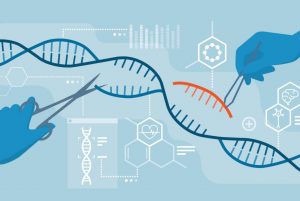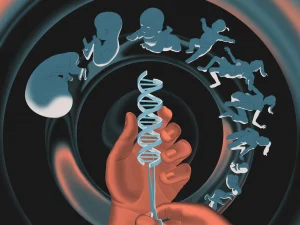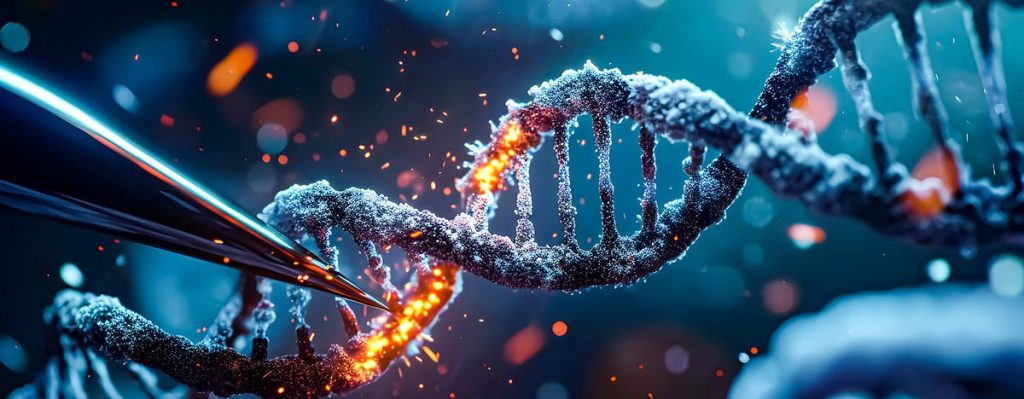Gene Enhancements

As biotechnology advances, gene therapy has evolved as a revolutionary medical approach that promises to not only treat but potentially prevent and even enhance human traits. Through altering the genetic sequence in our cells, this technology has already started to change the way scientists understand and approach medicine. As gene therapy pushes beyond therapeutic applications and closer to enhancements such as improving physical and cognitive abilities, society faces more profound ethical, social, and philosophical questions. The line between healing and enhancements is becoming increasingly blurred, which challenges views on fairness, individual agency, and human dignity. Understanding the ethical debates surrounding gene enhancements requires a careful examination of the potential benefits, risks, and ethical boundaries from societal, cultural, and religious perspectives to guide a responsible use.
Background and Ethical Concerns

Throughout history, people have sought to enhance their physical abilities, cognitive capacity, and appearance. Society tends to reward individuals with highly valued characteristics and traits, which has led to a general and widespread acceptance of enhancement methods ranging from cosmetic surgery to performance-enhancing drugs. 1 However, society draws the line with riskier or ethically questionable practices. Originally developed for treating diseases such as cystic fibrosis and cancer, gene therapy is now being explored for non-therapeutic uses, such as enhancing physical abilities, cognitive traits, or appearances. 2 Recent advances have indicated that gene transfer could potentially improve endurance, muscle strength, memory, cognition, weight control, and other attributes. As genetic enhancement becomes more feasible and exploring non-therapeutic enhancements intensifies the debate on its potential impact on society, where addressing the social, ethical, and safety implications will be essential.
In sports, there is an ongoing debate about fairness, and there are current implications surrounding the use of performance-enhancing drugs, as the athletes may feel pressured to enhance their performance using drugs or other methods to succeed. 3 The competitive drive to succeed, influenced by coaches, financial incentives, and personal ambitions, motivates athletes to seek any competitive edge possible, such as cases of small enhancements that can make the difference between winning and losing. While performance-enhancing drugs are often regulated to ensure fair competition, the use of drugs distorts the fundamental values of sports and the concept of hard work for outcomes. 4 If drawing the line is challenging with drugs, gene editing introduces an even more complex question about fairness.

As gene therapies advance, considerations around access and equity are important, such as how much these therapies will cost and how much improvement they provide. 5 Having expensive enhancements raises concerns about class divides, where wealthier individuals may be able to afford enhanced genetic traits that give them an advantage. While therapies aimed at rehabilitation are used to restore individuals to a normal state, enhancements go beyond elevating an individual’s performance levels. Enhancement therapies introduce new socioeconomic risks, potentially disrupting fairness and creating unnatural genomes that are altered beyond natural restoration. 6 This could exacerbate existing disparities, as wealthier families may feel pressure to pursue enhancements to keep up, disadvantaging those who cannot afford such treatments. Unlike rehabilitative therapies that do not significantly alter overall performance metrics, enhancement therapies may impact competitive and societal inequalities, raising the question not just about pursuing genetic enhancements but also about managing their potential consequences.
Genetic manipulation, such as direct gene transfer to enhance athletic performance, has been explored, though it is not widely available or safe. Indirect manipulation, such as biosynthetic human growth hormone (hGH), has long been used to alter human physiology, with some parents seeking to enhance their children’s height, reflecting societal bias for height. 7 This creates social inequalities, as only wealthier families may be able to afford these enhancements, and the relative differences in height would be more pronounced, thus reinforcing the importance of height and perpetuating existing inequalities. Similarly, cognitive enhancements through pharmaceuticals may affect various sectors, such as jobs and academics, much like performance enhancements in sports. 8 This highlights the ethical concern about genetic and technological enhancements and their implications related to social inequality and prejudice.

Genes and disease also have a relationship, where monogenetic diseases usually have a straightforward inheritance pattern that can be complicated due to the environment and interactions between genes. 9 Polygenic diseases are more complex and have multiple genes, gene expression regulators, and environmental factors such as type 1 and type 2 diabetes mellitus. Gene therapy has long targeted diseases by inserting genetic material into diseased cells to restore a healthy phenotype. Early gene therapy efforts in the 1980s focused on single-gene diseases such as hemophilia and sickle cell anemia. 10 Now, somatic gene therapies that do not affect germ lines remain experimental but raise ethical and regulatory concerns. These therapies may have long-term effects that are unpredictable, and the successful integration of new DNA into target cells is not guaranteed and requires many treatment cycles. Through gene therapy, treating polygenetic disorders like diabetes is challenging because they need to have specific gene alterations and to understand the functions. The goal may shift from curing these genetic abnormalities to promoting genetic traits to lower disease risk for future generations, which leads to the concept of genetic enhancement. The completion of the human genome project has prompted a shift to understanding biological systems in more complex ways, from structural to functional aspects of the genome, which emphasizes the need for more biotechnology and human genetic improvement.

While it is great that the technology can analyze individual genomes and is leading to more personalized medicines, integrating pharmacogenetics into healthcare raises concerns for potential eugenics. 11 With current technology, there is a large portion of literature that talks about genetic diseases and prenatal intervention and the justification of direct alterations to human genetic heritage and implications for future generations, but there is no scientific proof that enhancement technologies would have positive outcomes without causing harm. Current research seems to be driven more by cultural and economic interests than the focus on individual dignity and the common good. Some researchers argue for the protection of human nature against biotechnological advances that may alter humans’ essential qualities like freedoms and responsibilities, where if genes could define and control aspects of a person, it would undermine human agency. 12 Genetic interventions for polygenetic diseases may have ethical questions for current and future generations where the unpredictability may harm fundamental human traits such as character and happiness, so the human genome project emphasizes the need to balance scientific possibilities with ethical considerations. Where decisions about genetic enhancement and any manipulation should reflect moral responsibility and understand that good aim must have ethically sound practices in biomedical research.
A significant distinction between therapies aimed at curing diseases and enhancements like improved intelligence and strength is that enhancements raise ethical issues, especially with neuro-ethics that explain where cognitive abilities could be affected. 13 While technology for gene editing research is not yet capable of making people stronger, faster, and smarter, research in reproductive medicine and germline interventions could eventually make this possible. For some scientists, while gene enhancement is a concern, the current research remains focused on clinical applications for disease treatment, specifically through germline gene editing (GGE). GGE raises ethical issues as introducing new genes to correct a genetic abnormality may inadvertently alter the germline of the embryo rather than correcting the mutation itself. 14 As technology develops, there must be guidelines to ensure responsible use and accountability to address the distinctions between types of genetic intervention and enhancements.

The case of Dolly the cloned sheep in 1997, for example, sparked concerns about cloning and the potential for human cloning and the medical risks associated with it. 15 Some argue that cloning violates individual autonomy by choosing a child’s genetic traits, limiting their freedom in determining their own future. This includes genetic enhancements for traits of musical or athletic ability potentially pushing children to predetermined paths. Others counter that everyone is born with genetic inheritance that they did not choose, so question why it is bad to choose traits for their kids since it fails to account for adults who want genetic enhancements for themselves and traits that they would have wanted. 16 Genetic enhancements differ from cosmetic surgeries by affecting core characteristics and traits that may carry long-term implications and consequences. While enhancements may fulfill humanity’s ambitions to control its nature, they risk undermining the appreciation for life as being inherently unique and admirable.
Ethical Viewpoints

Transhumanists reject the notion that changing human nature with science is inherently wrong, and they focus on the potential benefits of genetic technology, such as improved health and capabilities. 17 This view acknowledges concerns that genetic enhancements could lead parents to treat their children as products and undermining the unconditional love, promoting harmful standards of quality control as dystopian and speculative views. 18 They argue that germline enhancements could result in healthier and happier children because they are more capable, reducing genetic blame from disabilities, leading to a larger support system, and mitigating risks. Transhumanists generally see the potential benefits that genetic enhancements may provide as outweighing the risks and would advocate for further development.
Philosophical ethics questions whether genetic modifications that change human nature should be permissible, as they may restrict individual freedoms and reduce genetic diversity. 19 Concerns include the safety, reversibility, and long-term impacts of gene editing. The debate involves whether editing for medical benefits outweighs ethical issues. Philosophical ethics claims that genetic enhancements violate their focus on human dignity, while others may believe that they could help achieve the best version of humanity if applied carefully. In a CRISPR experiment, Dr. He Jiankui sparked a debate through altering life with genetic engineering because the lives of genetically modified children were not objectively worse or better. 20 While some philosophers argue that this could be seen as cheating evolution, others believe that editing for medical benefits, such as for diseases, outweighs potential philosophical concerns if the technology is approached cautiously to improve human health and could help achieve humanity’s best potential.

Religious perspectives vary on genetic modification, questioning if humans should have the right to “play God” through genetic modifications. 21 While some religious traditions, such as Islam, Judaism, and certain Christian interpretations, may accept gene enhancements for medical purposes if done ethically, there are still concerns. Religious groups such as Islam support gene editing when it is done to treat diseases and if the collaboration between scientists and Sharia law experts has an ethical alignment. 22 Judaism sees gene enhancements and editing to collaborate with God and save lives. 23 Even certain Christian views emphasize human creativity and state that gene editing could reflect God’s image in improving human health if done ethically. 24 These theological concerns emphasize that any genetic intervention should also align with moral values and societal well-being, warranting careful interdisciplinary discussions to help refine and fine-tune ethical standards of genetic enhancements.

Genetic enhancements also vary across different cultures, nations, and public perspectives, with Western cultures generally being more cautious of germline editing than other nations. 25 For example, in the United States, support exists for gene editing in therapeutic contexts, but there are lingering concerns about the implications and ethical risks for future offspring. In Europe, countries like the Netherlands are open to gene editing for non-enhancement purposes, while countries like Germany are wary with concerns for increasing social inequality and the potential loss of natural human identity. 26 Africa emphasizes the importance of community, where genome editing should not limit a person’s ability to interact with their community and may have issues with justice and discrimination. In Asia, such as Japan, views gene editing and enhancements as beneficial for medical use but has concerns about the safety after the CRISPR-edited twins’ case in China. 27 On the other end of the spectrum, countries like New Zealand strongly oppose genome editing, stating that it disrupts mauri, or life essence, and the imbalance that this could have on nature. 28All these countries have different viewpoints on which concerns bother them the most due to the culture and lifestyle they have adopted. Across regions, shared concerns about genetic editing’s impact on future generations highlight the need for careful ethical considerations.
Gene enhancements bring diverse viewpoints from transhumanist, theological, philosophical, cultural, and ethical perspectives. While gene therapy holds a promise as a useful medical tool to treat and prevent diseases, its potential for enhancement raises questions about fairness, societal impacts, and various ethical boundaries. Although there is an interest in advancing gene therapies and enhancements, society must prioritize using gene therapies for medical treatments before moving onto pursuing enhancements, and more concerns that may arise.
- Kiuru, Maija, and RG Crystal. Progress and prospects: Gene therapy for performance and appearance enhancement, April 2008. https://www.researchgate.net/publication/5569492_Progress_and_prospects_Gene_therapy_for_performance_and_appearance_enhancement. ↵
- Kiuru, Maija, and RG Crystal. Progress and prospects: Gene therapy for performance and appearance enhancement, April 2008. https://www.researchgate.net/publication/5569492_Progress_and_prospects_Gene_therapy_for_performance_and_appearance_enhancement. ↵
- Murray, Thomas. “Reflections on the Ethics of Genetic Enhancement.” Genetics in Medicine, November 1, 2002. https://www.sciencedirect.com/science/article/pii/S1098360021042787. ↵
- Murray, Thomas. “Reflections on the Ethics of Genetic Enhancement.” Genetics in Medicine, November 1, 2002. https://www.sciencedirect.com/science/article/pii/S1098360021042787. ↵
- Alexander Harding *, “ARTICLE: REHABILITATION OR ENHANCEMENT? FDA & THE GENE THERAPIES OF TOMORROW,” Harvard Journal of Law & Technology, 33, 639 (Spring, 2020). https://advance.lexis.com/api/document?collection=analytical-materials&id=urn%3acontentItem%3a60FW-HXK1-JSC5-M1FT-00000-00&context=1519360&identityprofileid=F6F7RH53397. ↵
- Alexander Harding *, “ARTICLE: REHABILITATION OR ENHANCEMENT? FDA & THE GENE THERAPIES OF TOMORROW,” Harvard Journal of Law & Technology, 33, 639 (Spring, 2020). https://advance.lexis.com/api/document?collection=analytical-materials&id=urn%3acontentItem%3a60FW-HXK1-JSC5-M1FT-00000-00&context=1519360&identityprofileid=F6F7RH53397. ↵
- Murray, Thomas. “Reflections on the Ethics of Genetic Enhancement.” Genetics in Medicine, November 1, 2002. https://www.sciencedirect.com/science/article/pii/S1098360021042787. ↵
- Murray, Thomas. “Reflections on the Ethics of Genetic Enhancement.” Genetics in Medicine, November 1, 2002. https://www.sciencedirect.com/science/article/pii/S1098360021042787. ↵
- Bertolaso, Marta, Jenny Olsson, Antonio Picardi, and Jorge Rakela. Gene therapy and enhancement for diabetes (and other diseases): the multiplicity of considerations, September 5, 2010. https://onlinelibrary.wiley.com/doi/full/10.1002/dmrr.1116 ↵
- Bertolaso, Marta, Jenny Olsson, Antonio Picardi, and Jorge Rakela. Gene therapy and enhancement for diabetes (and other diseases): the multiplicity of considerations, September 5, 2010. https://onlinelibrary.wiley.com/doi/full/10.1002/dmrr.1116 ↵
- Bertolaso, Marta, Jenny Olsson, Antonio Picardi, and Jorge Rakela. Gene therapy and enhancement for diabetes (and other diseases): the multiplicity of considerations, September 5, 2010. https://onlinelibrary.wiley.com/doi/full/10.1002/dmrr.1116 ↵
- Bertolaso, Marta, Jenny Olsson, Antonio Picardi, and Jorge Rakela. Gene therapy and enhancement for diabetes (and other diseases): the multiplicity of considerations, September 5, 2010. https://onlinelibrary.wiley.com/doi/full/10.1002/dmrr.1116 ↵
- Cwik, Bryan. “EBSCOHost.” CSUSM University Library, October 1, 2019. https://advance.lexis.com/api/document?collection=analytical-materials&id=urn%3acontentItem%3a5X7C-BP31-FFMK-M3KH-00000-00&context=1519360&identityprofileid=F6F7RH53397. ↵
- Cwik, Bryan. “EBSCOHost.” CSUSM University Library, October 1, 2019. https://advance.lexis.com/api/document?collection=analytical-materials&id=urn%3acontentItem%3a5X7C-BP31-FFMK-M3KH-00000-00&context=1519360&identityprofileid=F6F7RH53397. ↵
- İlkılıç, İlhan, and Rainer Brömer. “Michael J. Sandel: The Case Against Perfection: Ethics in the Age of Genetic Engineering. Medicine Studies.” The Case Against Perfection: Ethics in the Age of Genetic Engineering, 2009. https://scholar.harvard.edu/sandel/publications/case-against-perfection-ethics-age-genetic-engineering. ↵
- İlkılıç, İlhan, and Rainer Brömer. “Michael J. Sandel: The Case Against Perfection: Ethics in the Age of Genetic Engineering. Medicine Studies.” The Case Against Perfection: Ethics in the Age of Genetic Engineering, 2009. https://scholar.harvard.edu/sandel/publications/case-against-perfection-ethics-age-genetic-engineering. ↵
- Bostrom, Nick. Human genetic enhancements: A transhumanist perspective, 2003. https://iatranshumanisme.com/wp-content/uploads/2019/01/bostrom_2003-Human-Genetic-Enhancements-A-Transhumanist-Perspective.pdf. ↵
- Bostrom, Nick. Human genetic enhancements: A transhumanist perspective, 2003. https://iatranshumanisme.com/wp-content/uploads/2019/01/bostrom_2003-Human-Genetic-Enhancements-A-Transhumanist-Perspective.pdf. ↵
- Joseph, Andrew M, Monica Karas, Yaseen Ramadan, Ernesto Joubran, and Robin J Jacobs. “Ethical Perspectives of Therapeutic Human Genome Editing from Multiple and Diverse Viewpoints: A Scoping Review.” Cureus, November 27, 2022. https://pmc.ncbi.nlm.nih.gov/articles/PMC9793437/#:~:text=It%20is%20critical%20to%20differentiate,disease%20being%20addressed%20%5B21%5D. ↵
- Joseph, Andrew M, Monica Karas, Yaseen Ramadan, Ernesto Joubran, and Robin J Jacobs. “Ethical Perspectives of Therapeutic Human Genome Editing from Multiple and Diverse Viewpoints: A Scoping Review.” Cureus, November 27, 2022. https://pmc.ncbi.nlm.nih.gov/articles/PMC9793437/#:~:text=It%20is%20critical%20to%20differentiate,disease%20being%20addressed%20%5B21%5D. ↵
- Joseph, Andrew M, Monica Karas, Yaseen Ramadan, Ernesto Joubran, and Robin J Jacobs. “Ethical Perspectives of Therapeutic Human Genome Editing from Multiple and Diverse Viewpoints: A Scoping Review.” Cureus, November 27, 2022. https://pmc.ncbi.nlm.nih.gov/articles/PMC9793437/#:~:text=It%20is%20critical%20to%20differentiate,disease%20being%20addressed%20%5B21%5D. ↵
- Joseph, Andrew M, Monica Karas, Yaseen Ramadan, Ernesto Joubran, and Robin J Jacobs. “Ethical Perspectives of Therapeutic Human Genome Editing from Multiple and Diverse Viewpoints: A Scoping Review.” Cureus, November 27, 2022. https://pmc.ncbi.nlm.nih.gov/articles/PMC9793437/#:~:text=It%20is%20critical%20to%20differentiate,disease%20being%20addressed%20%5B21%5D. ↵
- Joseph, Andrew M, Monica Karas, Yaseen Ramadan, Ernesto Joubran, and Robin J Jacobs. “Ethical Perspectives of Therapeutic Human Genome Editing from Multiple and Diverse Viewpoints: A Scoping Review.” Cureus, November 27, 2022. https://pmc.ncbi.nlm.nih.gov/articles/PMC9793437/#:~:text=It%20is%20critical%20to%20differentiate,disease%20being%20addressed%20%5B21%5D. ↵
- Joseph, Andrew M, Monica Karas, Yaseen Ramadan, Ernesto Joubran, and Robin J Jacobs. “Ethical Perspectives of Therapeutic Human Genome Editing from Multiple and Diverse Viewpoints: A Scoping Review.” Cureus, November 27, 2022. https://pmc.ncbi.nlm.nih.gov/articles/PMC9793437/#:~:text=It%20is%20critical%20to%20differentiate,disease%20being%20addressed%20%5B21%5D. ↵
- Joseph, Andrew M, Monica Karas, Yaseen Ramadan, Ernesto Joubran, and Robin J Jacobs. “Ethical Perspectives of Therapeutic Human Genome Editing from Multiple and Diverse Viewpoints: A Scoping Review.” Cureus, November 27, 2022. https://pmc.ncbi.nlm.nih.gov/articles/PMC9793437/#:~:text=It%20is%20critical%20to%20differentiate,disease%20being%20addressed%20%5B21%5D. ↵
- Joseph, Andrew M, Monica Karas, Yaseen Ramadan, Ernesto Joubran, and Robin J Jacobs. “Ethical Perspectives of Therapeutic Human Genome Editing from Multiple and Diverse Viewpoints: A Scoping Review.” Cureus, November 27, 2022. https://pmc.ncbi.nlm.nih.gov/articles/PMC9793437/#:~:text=It%20is%20critical%20to%20differentiate,disease%20being%20addressed%20%5B21%5D. ↵
- Joseph, Andrew M, Monica Karas, Yaseen Ramadan, Ernesto Joubran, and Robin J Jacobs. “Ethical Perspectives of Therapeutic Human Genome Editing from Multiple and Diverse Viewpoints: A Scoping Review.” Cureus, November 27, 2022. https://pmc.ncbi.nlm.nih.gov/articles/PMC9793437/#:~:text=It%20is%20critical%20to%20differentiate,disease%20being%20addressed%20%5B21%5D. ↵
- Joseph, Andrew M, Monica Karas, Yaseen Ramadan, Ernesto Joubran, and Robin J Jacobs. “Ethical Perspectives of Therapeutic Human Genome Editing from Multiple and Diverse Viewpoints: A Scoping Review.” Cureus, November 27, 2022. https://pmc.ncbi.nlm.nih.gov/articles/PMC9793437/#:~:text=It%20is%20critical%20to%20differentiate,disease%20being%20addressed%20%5B21%5D. ↵




6 comments
arosales11
This paper successfully shows the many ethical and societal difficulties that gene therapy presents, particularly as it progresses from illness treatment to human characteristic enhancement. You did an outstanding job of balancing many points of view and clarifying complex ethical issues. It is thought-provoking and gives an in-depth grasp of the subject. It highlights critical concerns about fairness, accessibility, and the long-term implications of genetic alteration, suggesting a prudent and careful approach to these powerful technologies.
Jordan Robbins
Hi, through your writing, I learned so much about the gene enhancements that are being made worldwide. It’s so crazy to think we can come to a position now to change things such as our genetic makeup. I like how you explained the pros and cons of these enhancements and which countries want to adapt to this! What made you interested in talking about this topic?
Macarena Machado Combe
Loved the article. It was well-written and clearly expressed different viewpoints. It got me thinking on how today’s technology has become both amazing and somewhat scary. On one hand, genetic therapy and gene manipulation hold potential on preventing and curing chronic diseases, which is amazing. On the other hand, the idea of choosing traits for an individual or even human cloning, seems like something out of a science-fiction movie that ends badly for humans.
Alysia Cano
This article effectively highlights the complex ethical and societal challenges posed by gene therapy, especially as it transitions from treating diseases to enhancing human traits. It raises important questions about fairness, accessibility, and the long-term consequences of genetic manipulation, urging a responsible and cautious approach to these powerful technologies.
Danielle Villanueva
This article was fascinating! It dives deep into the complex world of gene enhancements, showing how this technology could change human abilities. I learned how different cultures and religions view genetic modifications differently. I’m curious: What potential positive impacts could gene therapy have for people with genetic diseases? The article made me realize how complicated and important ethical discussions are when it comes to changing human genetics.
Cesia Gonzalez
I enjoyed reading your piece! You did a great job balancing the different perspectives and making the complex ethical issues easy to understand. It’s thought-provoking and gives a clear view of the debate. You’ve made a tough topic accessible and engaging. Awesome work! I can see the effort put into your work!